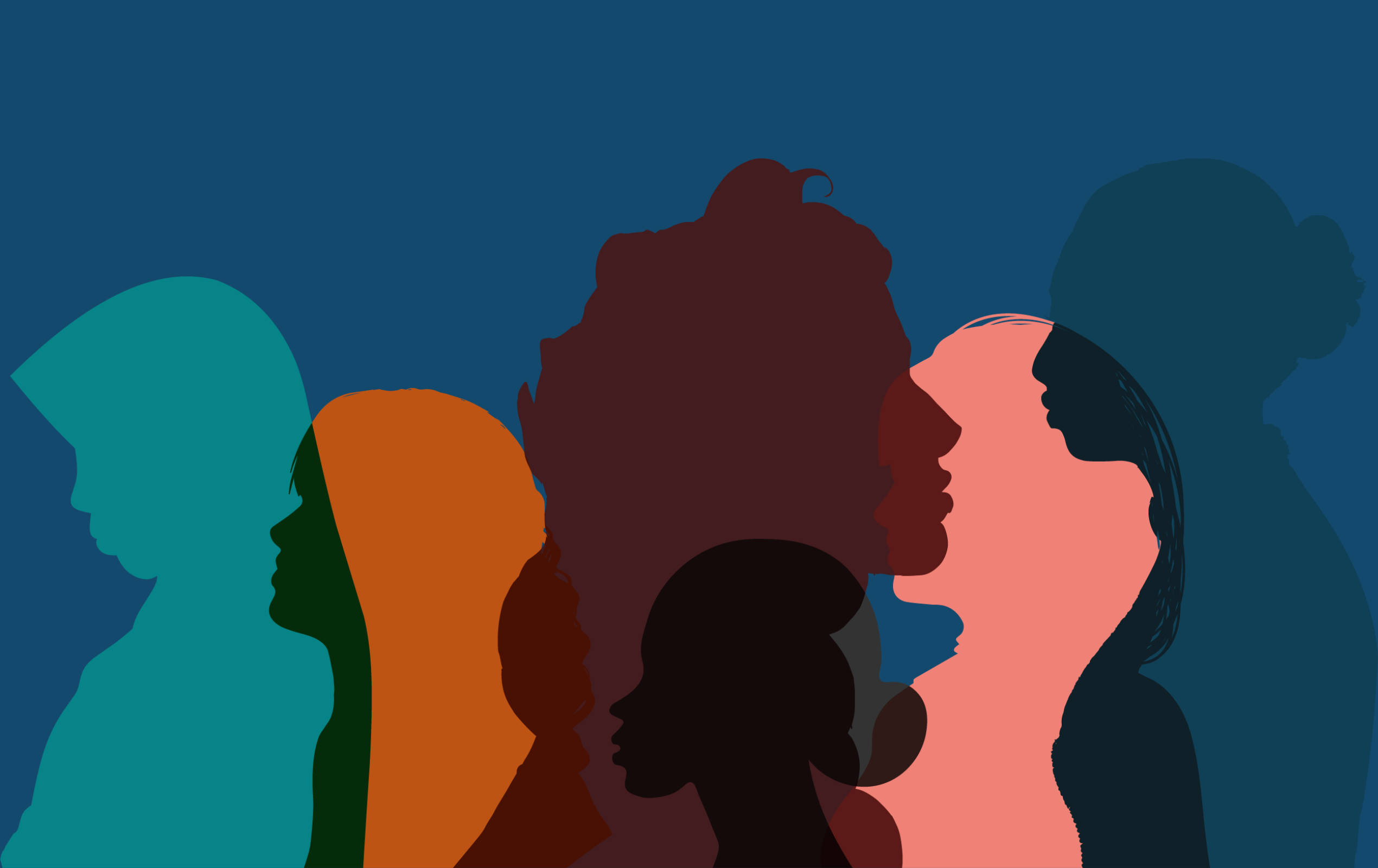The Realities of Violence Against Women and Girls in the Commonwealth

With International Women’s Day 2024 taking place last Friday, as well as both Commonwealth Week and the UN Commission on the Status of Women commencing today, we are highlighting the realities that millions of women and girls face across the Commonwealth.
Violence against women and girls (VAWG) is an alarming global issue; its roots are pervasive and it can be found throughout societies worldwide. According to the End Violence Against Women, VAWG is defined as “any form of violence disproportionately perpetrated by men against women and girls. It is deeply linked to women’s inequality and includes sexual violence, domestic abuse, stalking and harassment, female genital mutilation, forced marriage and so-called ‘honour-based’ abuse, exploitation and abuse of women and girls in online spaces.”
WIth women and girls at disproportionate risk of abuse, exploitation, trafficking and other forms of violence, it is clear that urgent attention and collective action is needed in order to create a safer and more equitable Commonwealth.
The Prevalence of VAWG in the Commonwealth
Within the Commonwealth, VAWG is widespread and takes many forms. Whilst it is a nearly universal experience for women and girls everywhere, the nuances of experiences of VAWG differ from person-to-person, often based on various identities and characteristics. Women and girls facing intersecting forms of inequality based on race or ethnicity, wealth or social class, religion, sexuality, gender identity, disability, mental health, or age are at a heightened risk of experiencing violence. Tragically, these individuals also encounter greater challenges in accessing justice and receiving the support they urgently need.
Sexual violence is a deeply entrenched problem across Commonwealth nations. WHO reports suggest that around 7% of women worldwide have been sexually assaulted by someone other than their partner. In Commonwealth countries, this figure is often higher, with cultural and societal norms contributing to underreporting. For instance, a study in India revealed that only 1 in 100 cases of sexual violence is reported to the authorities. Currently available data indicates that girls are disproportionately affected by child sexual exploitation and abuse (CSEA). For example, research shows that 120 million girls worldwide have been subjected to some form of sexual abuse, and that girls are at the greatest risk of being groomed online.
Physical violence remains a significant issue within the Commonwealth, disproportionately affecting women. According to the World Health Organization (WHO), about 30% of women globally have experienced physical or sexual violence by an intimate partner. A UN Women report reveals that 137 women are killed by a family member every day globally. In many Commonwealth countries, domestic violence rates are alarmingly high, with estimates indicating that one in three women has experienced physical or sexual violence.
Emotional and psychological abuse, though less visible, can have profound and lasting effects on survivors. Studies conducted in various Commonwealth countries indicate that approximately 25-50% of women have experienced emotional or psychological abuse in intimate relationships. The pervasive nature of these non-physical forms of violence underscores the need for comprehensive support systems.
Female genital mutilation/cutting (FGM/C) affects millions of women and girls throughout the Commonwealth. When performed on a girl under the age of 18, FGM/C is considered a form of child abuse which is contrary to the UN Convention on the Rights of the Child. Reportedly, at least 200 million girls and women living in 30 countries have undergone FGM/C. The regions of the Commonwealth where FGM is most prevalent are Africa and Asia.
Child, early & forced marriage (CEFM) is a harmful traditional practice that violates the human rights of millions worldwide. The majority of those impacted are women and girls; 1 in 5 girls globally are married before they reach the age of 18 (UNICEF, 2020). In Commonwealth countries, this practice continues, with alarming statistics indicating that approximately 15 million girls are married off annually before reaching adulthood – according to the Commonwealth Lawyers Association, 43% of women in the Commonwealth are married before they reach 18 years of age.
CEFM is a global issue that manifests across countries, cultures, religions and ethnicities (Girls Not Brides, 2022). It has been found to occur in all regions of the world, and in families from all major religions, as well as non-religious families. In many cases, CEFM can be categorised as a form of violence against women/girls, as well as a form of modern slavery and a pathway to child sexual exploitation and abuse (CSEA). Most children who are forced into marriage are at risk of sexual violence, domestic/family violence, early pregnancies and discontinued education. To learn more about CEFM in the Commonwealth, read our Policy Brief.
Human trafficking poses a significant threat to women and girls in the Commonwealth. The International Labour Organization estimates that women and girls represent 71% of all human trafficking victims globally, often subjected to sexual exploitation. In several Commonwealth nations, vulnerabilities related to poverty, limited education, climate-related migration and displacement contribute to higher trafficking rates. According to the 2018 Global Slavery Index, approximately 40 percent of those in modern slavery reside in the Commonwealth – that means that 15.7 million people, or 1 in every 150 people, in the Commonwealth are living in modern slavery.
Violence in the aftermath of conflict, climate-related disasters and forced migration disproportionately impacts women and girls. As is being seen currently in Gaza, conflict has a horrific toll on women and girls – in Gaza, women and children account for 70% of all casualties. Research shows that the majority of those displaced by conflict are female. In many Commonwealth countries, conflict settings has been found to exacerbate rates of several forms of violence against women and girls, including sexual violence, intimate partner violence (IPV), and child, early and forced marriage (CEFM). For example, during the 1994 Rwandan genocide, ‘women were sexually assaulted on a scale previously unrecorded in any past genocide’. During the two-decade-long civil war in Sri Lanka, 13.4% of women experienced sexual violence.
The climate crisis is of particular concern in Commonwealth states, many of which are at the highest risk of climate change and natural disasters.
Women and girls are exposed to a heightened risk of trafficking and exploitation in cases of climate-induced migration and risks of trafficking are exacerbated during natural disasters. Child, early and forced marriage (CEFM) also often increases in the wake of climate change and climate-related disasters, as families engage in the practice aiming to reduce their economic vulnerability. Global research demonstrates the exacerbating effects that disasters have on pre-existing rates of sexual and gender-based violence (GBV). It has been documented that crises, such as conflict and natural disasters, exacerbate existing patriarchal structures, expanding the control men have over women and girls in their communities.
International Women’s Day serves as a powerful reminder of the strides we have made and the challenges that persist. To truly celebrate the achievements of women and girls within the Commonwealth, we must confront the sobering statistics surrounding violence. Governments, civil society, and individuals must unite to implement robust policies, promote education, and challenge cultural and societal norms that perpetuate violence against women and girls in all its forms.
Recently, strides have been made with the formation of the Commonwealth Says NO MORE movement, a pan-Commonwealth platform to address domestic and sexual violence. At It’s a Penalty, we are also working to address the vulnerability of girls to sexual exploitation and abuse across the Commonwealth through our CommonProtect high-level advocacy programme.
By confronting the root causes and dismantling systemic barriers, Commonwealth nations can work towards creating societies where women and girls are free from the shadows of violence, discrimination, and inequality. Only through concerted efforts can the Commonwealth truly become a beacon of progress in the global fight for gender equality.
Written by Elizabeth Speller
Advocacy Director, It’s a Penalty
